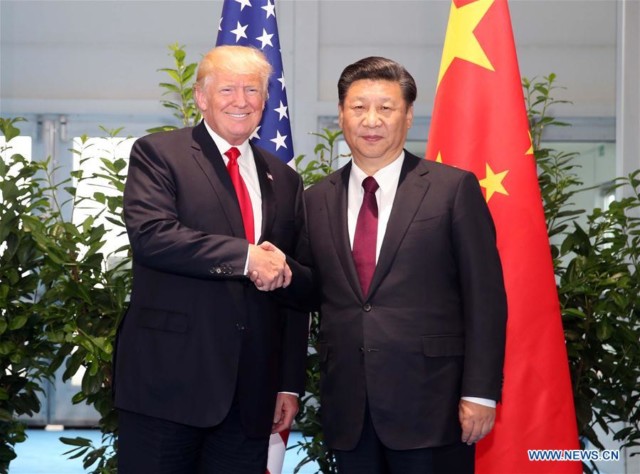The four China-U.S. comprehensive dialogues have concluded for the year.
CGTN’s White House correspondent Jessica Stone takes a look back.
Six months ago, Chinese President Xi Jinping joined U.S. President Donald Trump at Trump’s Mar-a-Lago estate in Florida, where U.S.-China trade and the Democratic People’s Republic of Korea were high on the agenda. The two leaders agreed to hold four regular joint dialogues instead of the usual two.
“I think high level engagement has been a standard feature of the China-U.S. relationship. That has allowed us to keep a stable and continuing progression in our relationship,” said Susan Thornton, Acting Assistant U.S. Secretary of State at the time.
At Washington’s request — the first diplomatic and security dialogue focused on reigning in the DPRK’s illegal nuclear and ballistic missile program.
“China understands that the United States regards North Korea is our top security threat,” said U.S. Secretary of State, Rex Tillerson.
But China also urged Washington to restart long-stalled talks with the DPRK, saying China’s ‘dual track’ plan wins global understanding and support and therefore should be considered by all sides.
Both also agreed to arrange reciprocal visits of their nation’s defense ministers.
A month later, Beijing and Washington launched the comprehensive economic dialogue.
“It is time to rebalance our trade and investment relationship in a more fair, equitable and reciprocal manner,” said Wilbur Ross, U.S. Secretary of Commerce.
“Dialogue cannot immediately address all differences, but confrontation will immediately damage the interest of both,” responded Chinese Vice Premier, Wang Yang.
However, the meeting resulted in an impasse on reducing global steel supply, no news conferences or joint statement, but some progress on inspection protocols for U.S. rice exports to China.
Last week, Washington hosted the Social and People-to-People Dialogue. Vice Premier Liu Yandong announced China will fund 10,000 scholarships for Americans to study in China.
“The young people need to pass on, guard, and explore Chinese friendship. The friendship between our two countries will be carried forward,” said Liu.
And last Wednesday, State Councilor Guo Shengkun led the Law Enforcement and Cybersecurity Dialogue with his U.S. counterparts. They addressed fugitive repatriation and cybersecurity cooperation.
“The dialogue facilitated forthright and detailed discussions and resulted in bilateral cooperation on priority issues including immigration, counter-narcotics, terrorism – counterterrorism rather, and also cybersecurity,” said U.S. State Department spokeswoman Heather Nauert.
The Law Enforcement and Cybersecurity Dialogue is the last in the series of dialogues established between the presidents of the United States and China back in April. They are now concluded for the year.
Daniel Wagner talks expectations for the China-US cyber dialogue
Daniel Wagner has been keeping a close eye on the China-U.S. Law Enforcement and Cybersecurity Dialogue. He is a managing director at Risk Cooperative, a strategy and risk advisory firm. He’s also the author of the book “Virtual Terror: 21st Century Cyber Warfare.” CGTN’s Mike Walter asked him what we should expect now that all four dialogues have concluded.
 CGTN America
CGTN America
 Photo from Xinhua
Photo from Xinhua
